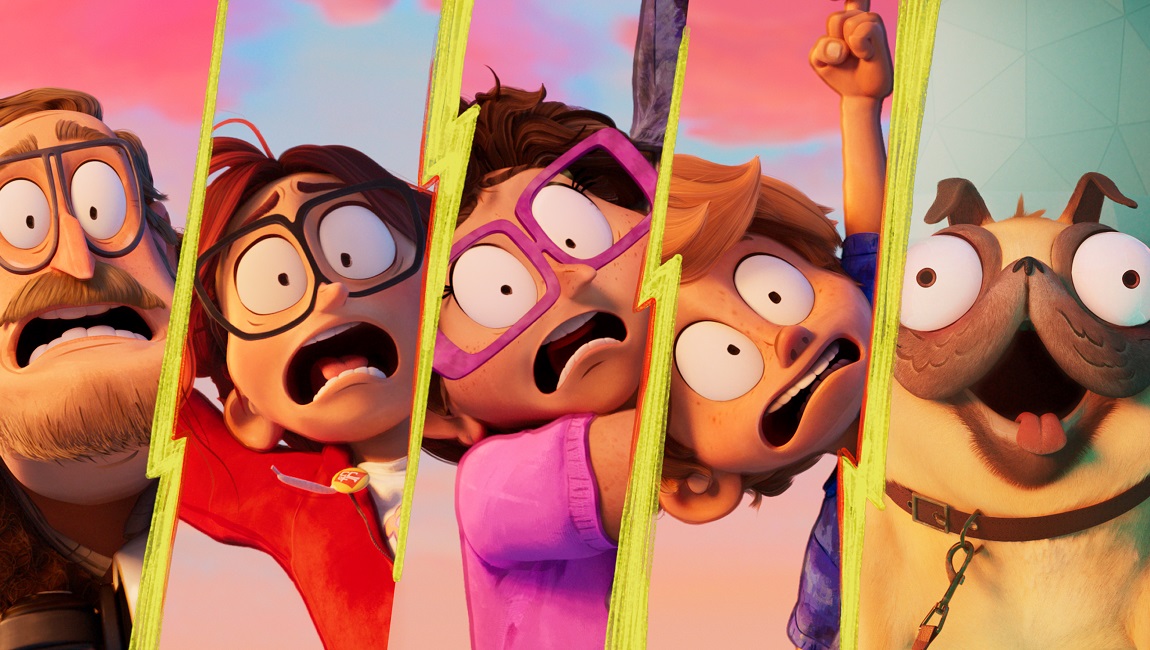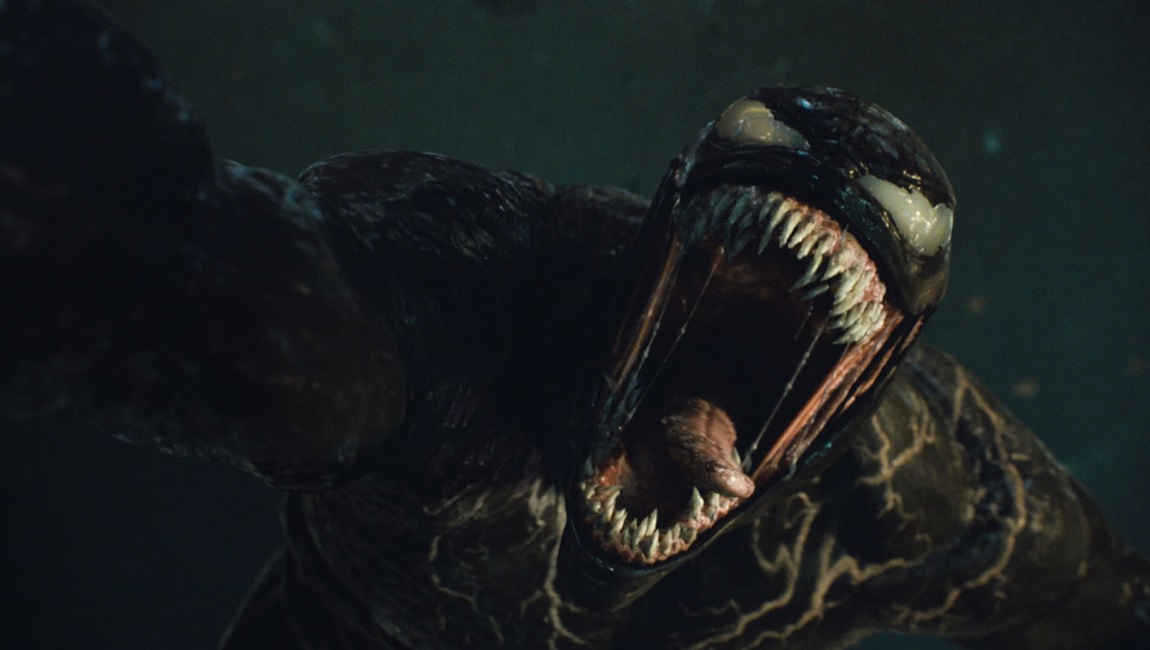While The Mitchells vs. the Machines doesn’t live up to obvious touchstone The Incredibles, it rides its own humorous and referential wavelength to mild success.
While less an homage to superhuman wisdom and superheroic strength than its gung-ho title may imply, The Mitchells vs. the Machines tackles the lesser ambitions of an ordinary family’s capricious dynamics within the comfortable scaffolds of the former. The year is 2020 and, instead of contending with a deadly global pandemic, the world faces the much more palatable alternative of a robot uprising; enslaving humanity using honeycombs of habitable “Human Fun Pods” with the saving grace of free WiFi, a rogue AI named PAL (voiced by Olivia Colman in a droll display of well-mannered villainy) soon captures all but the dysfunctional Mitchell family of five. Rick Mitchell, quintessential boomer dad, goofs on a different wavelength from his adolescent and artistic daughter Katie, while mom and first-grade teacher Linda looks on, mediating conflict as best she can alongside young son and dinosaur enthusiast, Aaron. (Their cross-eyed dog, Monchi, defies both intelligence and physical attribution.) A last-minute road trip turns out to make all the difference for both family and civilization at large — preventing certain annihilation by way of space-jettison, but also providing a much-needed opportunity for father and daughter to reconcile before their generational rift widens beyond repair.
This synopsis of The Mitchells vs. the Machines will no doubt recall Pixar’s more established franchise, The Incredibles, whose own suburban order finds itself tested by worldwide cataclysmic evil. Where the Parrs attempt to undo years of forced suppression of their superpowers, however, the Mitchells are forced to uncover a synergy without them. “Most action heroes have a lot of strengths. My family only has weaknesses,” declares Katie in an expository prologue that subverts the viewer’s premature expectations of kickass heroism and situates them firmly within everyday domesticity. Her close relationship with Rick has soured over the course of her teenage years and has been relegated to home-video nostalgia; while her father frets over her decision to pursue an education in film school, she no longer connects with his interests and personality. A classical formula of overprotective parent and frustrated child undergirds director Michael Rianda’s debut, which to his credit is executed with technical finesse and stylistic aplomb. Constantly spiced up with a balance of corny boomer humor and zany millennial self-awareness, The Mitchells vs. the Machines synthesizes an older generation’s worldly disillusionment with the younger’s endearing optimism and prescribes, in safe and crowd-pleasing terms, compromise and acceptance as remedies.
What sets apart Rianda’s film from most of its deadening corporate ilk is also what stymies it from realizing its full potential: its mass appeal stems from a sociological currency that doesn’t quite dare unpack its themes (once again betraying the title’s confrontational promise). Coming back to the trappings of its genre, the comparisons between The Mitchells vs. the Machines and Brad Bird’s animated duology end with the family, on which both works smartly assert questions of expectations versus reality and the feelings of inadequacy every member will inexorably face. Unlike Bird however, whose Supers populate a neoliberal techno-society refreshingly and brutally deconstructed in both The Incredibles and Incredibles 2 — everything from the dialectics of corporate fascism and reactionary terrorism to the specter of Jean Baudrillard — Rianda contents the Mitchells with a cartoonish (pun not intended) and admittedly bathetic articulation of their contemporary milieu. Hinting at the perils of technological advancement and abuse without breaking past the surface, the film opts for a critique of modernity with which Rick would no doubt fully concur: teenagers being glued to their phones, the beauty of the arts replaced by a meme culture of obsolete Vines and superficial TikToks, the hostile interfaces of social media platforms, etc. And where The Incredibles found in its postmodern villain a perfect encapsulation of the era’s nihilism, Olivia Colman’s PAL is predicated on her tech guru creator first befriending and then later abandoning her.
Nonetheless, it might seem unfair to pit two works with very different aspirations against each other on the basis of their affinity with technology and familial centering. Despite The Mitchells vs. the Machines espousing a rather conservative outlook on the apocalypse by its conclusion, its coterie of dad jokes and adolescent homages more than makes up for it with heartwarming affirmation. Its humorous adoption of parody, from a Dawn of the Dead-like showdown at a mall to Katie’s Dog Cop shorts (her pride and joy, as well as her gateway to film school), entertains even when it does not enlighten; her anagnorisis here sweetens without becoming saccharine. Ultimately, the Mitchells prove worthy as exemplars of a perfectly imperfect group of “weirdos”; without feeling the need to iron out all their differences in favor of stilted and picture-perfect conformity, they harness their quirks and imperfections as strengths. For a film whose showdown occurs in a floating vessel dubbed the “Rhombus of Infinite Subjugation,” it amounts to a pretty good deal for a superhero family.
You can currently stream Michael Rianda’s The Mitchells vs. the Machines on Netflix.







